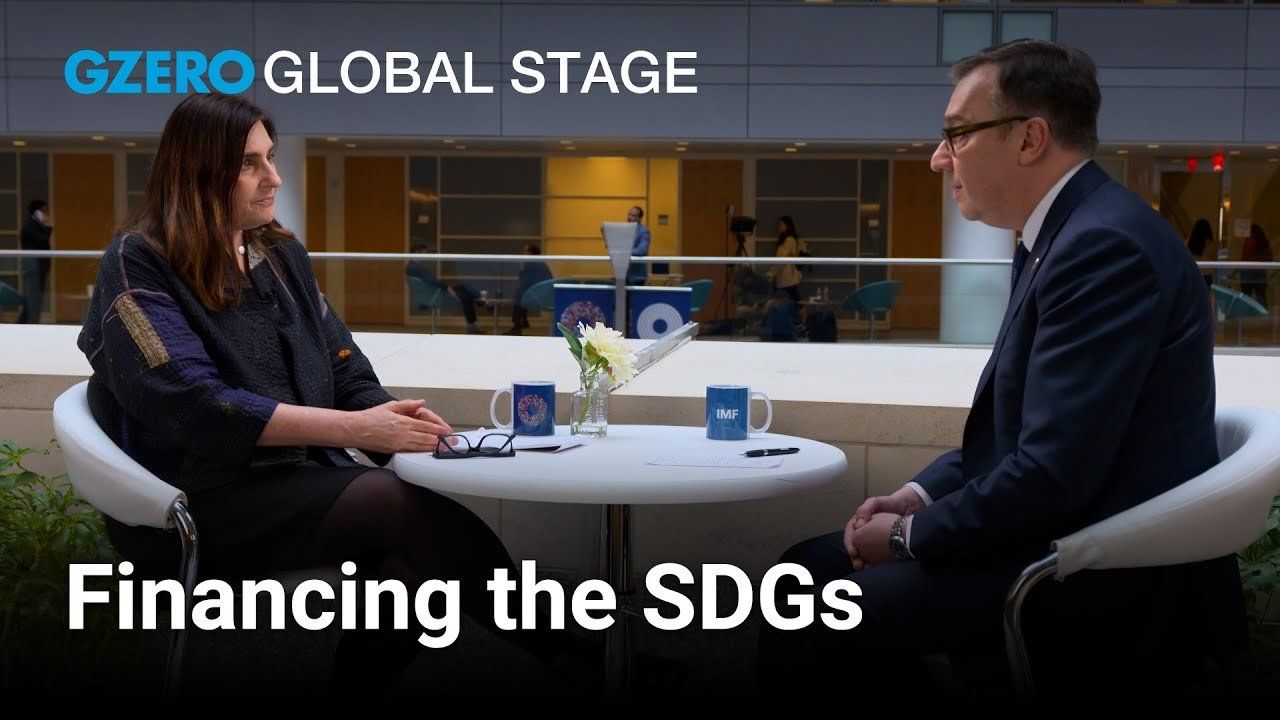Sustainability
Why the UN's 17 Sustainable Development Goals are not on track to be financed soon

Why the UN's 17 Sustainable Development Goals are not on track to be financed soon | Global Stage

The world faces a sustainable development crisis, and while most countries have strategies in place, they don’t have the cash to back them up. How far off track are we with the financing needed to support the UN’s 17 Sustainable Development Goals, ranging from quality education and health care to climate action and clean water?
Shari Spiegel, who runs the UN’s Financing for Sustainable Development Office, sat down with GZERO’s Tony Maciulis at a Global Stage event for the IMF-World Bank Spring Meetings this week. She explains that the SDGs were off track even before the pandemic and that now, owing to global crises, many poorer countries have slipped backwards.
“We actually started backtracking on many of these goals as countries were under enormous stress, and particularly the poorest countries,” she said, noting that the global output of many of the poorest nations has fallen by 30% — and some, such as the Small Island Developing States, by 40%. This has led to an enormous finance divide — raising SDG financing and investment gaps from $2 trillion a few years ago to around $4 trillion today.
So how can the UN restrengthen multilateralism and, in turn, help narrow this gap? Watch here.
100 million: The number of people expected to watch the Super Bowl halftime performance with Bad Bunny, the Puerto Rican superstar and newly minted Album of the Year winner at the Grammys.
Think you know what's going on around the world? Here's your chance to prove it.
An imminent US airstrike on iran is not only possible, it's probable.
Americans are moving less — and renting more. Cooling migration and rising vacancy rates, especially across the Sunbelt, have flattened rent growth and given renters new leverage. For many lower-income households, that relief is beginning to show up in discretionary spending. Explore what's changing in US housing by subscribing to Bank of America Institute.